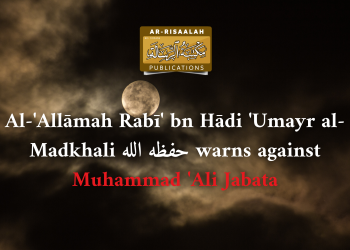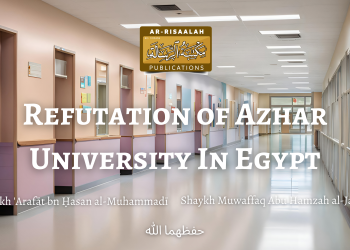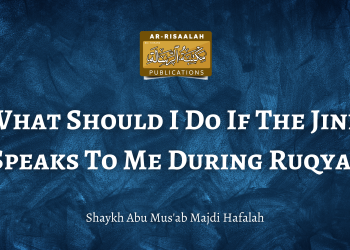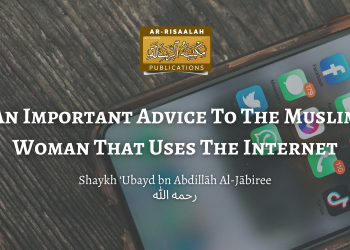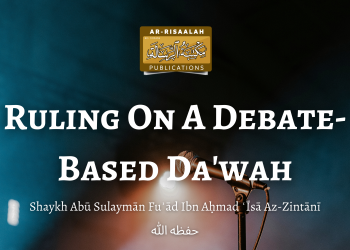And the Prophet ﷺ said, proclaiming to his nation till the day of judgement, “There are no days in which good deeds are more beloved to Allāh than these ten days [of Dhul Ḥijjah].“
Listen, “there are no days [that] good deeds in them are more beloved to Allāh than these ten days [of Dhul Ḥijjah]“, they [i.e the companions] said, “O messenger of Allāh, not even Jihād in the cause of Allāh?”—because Jihād is the highest part of Islam—he [i.e the Prophet ﷺ] said: “Not even Jihād in the cause of Allāh, except for a man that went out with his life and wealth and did not return with any of that.”
Meaning, he went out, fighting in the cause of Allāh, then he was killed, his horse was slaughtered and his wealth was taken. This is the [deed] that is better than the deeds in the [first] ten of Dhul Ḥijjah.
My brothers, a man gave a dirham in charity during the [last] ten of Ramaḍān and another in the [first] ten of Dhul Ḥijjah, which of the two is more virtuous? The second one or the first? Lā Ilāha illāllah!
A man gave a dirham in charity during the [last] ten of Ramaḍān and another gave a dirham in the [first] ten of Dhul Ḥijjah, which of the two is more virtuous?
The first one? The one in Ramaḍān? Good! The second one? The one in the [first] ten of Dhul Ḥijjah? Good!
We have two men disputing here now. One of them says, the one who gives in charity in the [last] ten of Ramaḍān and the second says, the one gives in the [first] ten of Dhul Ḥijjah. To whom do we return?
If you dispute in something, return it to whom? To Allāh and the Messenger. We returned it to the Messenger, and we found him saying, “There are no days [that] good deeds in them are more beloved to Allāh than these ten days [of Dhul Ḥijjah].”
Hence, which of them is correct? The one that said, the person who gave in charity during the [first] ten of Dhul Ḥijjah is more virtuous.
Did you hear, O my brother? May Allāh bless you. Good!
A man observed two units of [voluntary] prayer in the [last] ten of Ramaḍān and another observed two units of [voluntary] prayer in the [first] ten of Dhul Ḥijjah, which is more virtuous? The second or the first? The second!
By Allah, this is strange to the laymen. It is strange to the laymen. How will you consider good deeds in the [first] ten of Dhul Ḥijjah more virtuous than good deeds in the [last] ten of Ramaḍān?! This is strange to the laymen. But it is not strange to the people of knowledge.
And due to this, I say, it is compulsory upon the people of knowledge to explain to the laymen that the good deeds in the [first] ten of Dhul Ḥijjah are more beloved to Allāh than the good deeds in any other time. And this is unknown to the laymen because they are not reminded of it except little. Good!
A man said, “subḥānallāh wa alḥamdulillāh wa lā Ilāha illāllah wa Allāh akbar”, in the [first] ten of Dhul Ḥijjah, and another said it in the [last] ten of Ramaḍān, which of them is more virtuous? Which of them is more virtuous? The first! Yes, the first! And take that as a standard.
Also from that is dutifulness to the parents. Dutifulness to the parents is obligatory. A man was dutiful to his parents either through serving [them] or [giving them] gifts or other than that in the [last] ten of Ramaḍān and another was dutiful to them in the [first] ten of Dhul Ḥijjah, which of them is more virtuous? The second or the first? The second! Take note, O my brother.
Fasting. Fasting. A man fasted in Rajab and another fasted in the [first] ten of Dhul Ḥijjah. Which of them is more virtuous? The second or the first?
A man fasted in Rajab and another fasted in the [first] ten of Dhul Ḥijjah. The second or the first? The second!
Why did I not use Ramaḍān as an example? I didn’t say, he fasted in Ramaḍān and another in the [first] ten of Dhul Ḥijjah.
Because [fasting in] Ramāḍan is obligatory, there’s no ambiguity in it. And the obligation is more virtuous than the supererogatory act, good.


